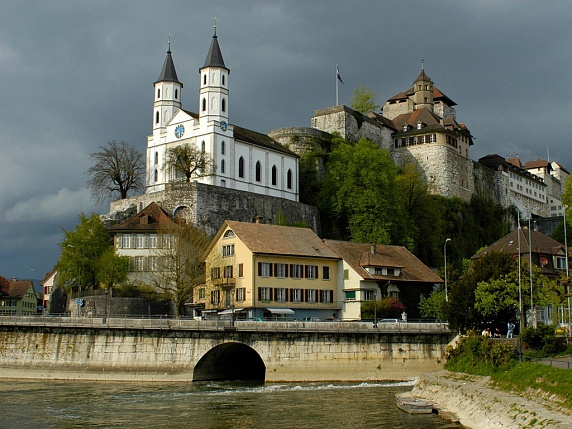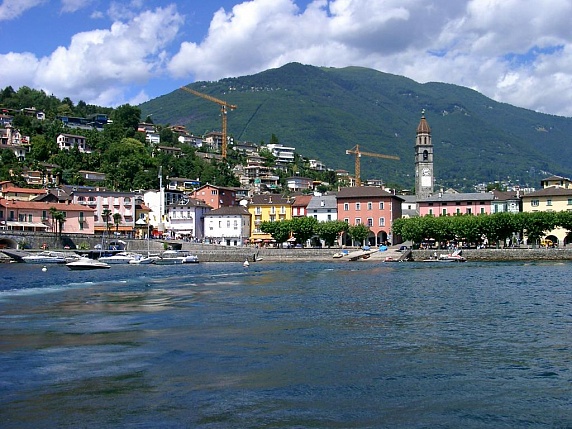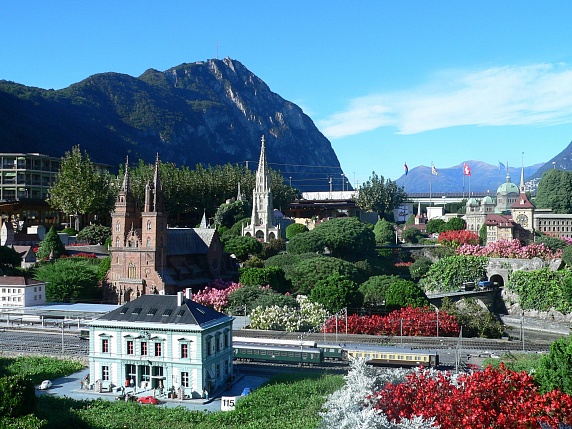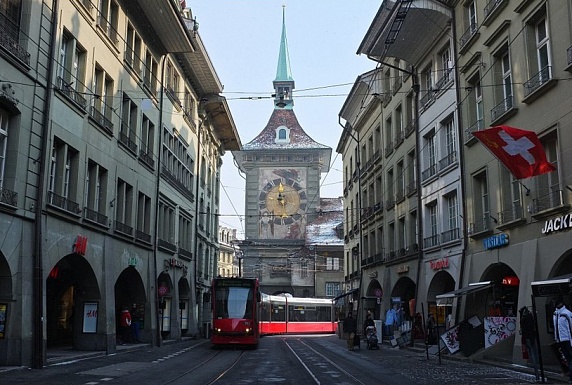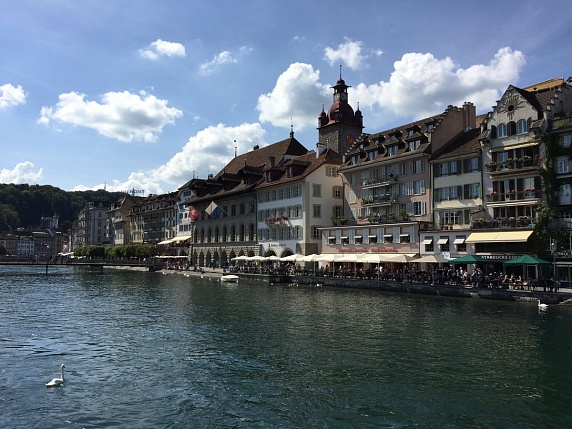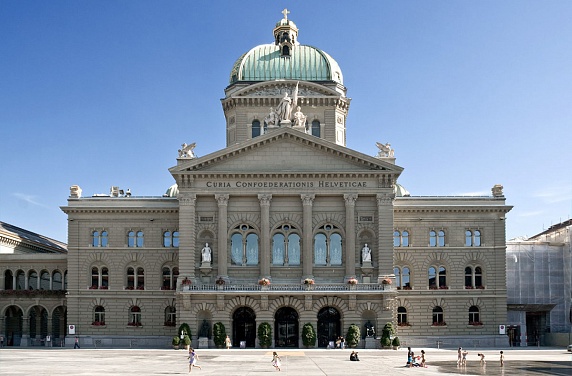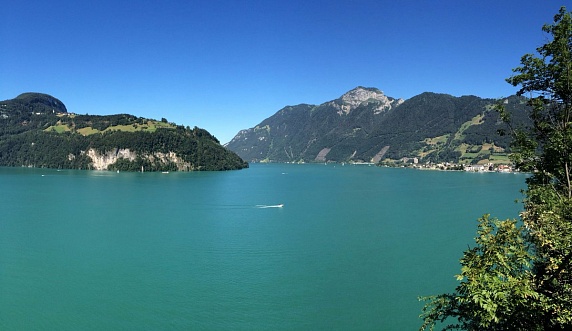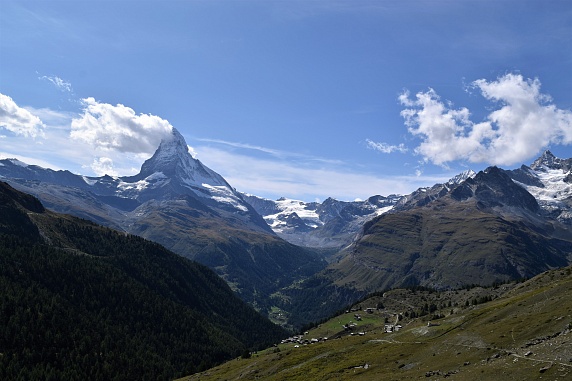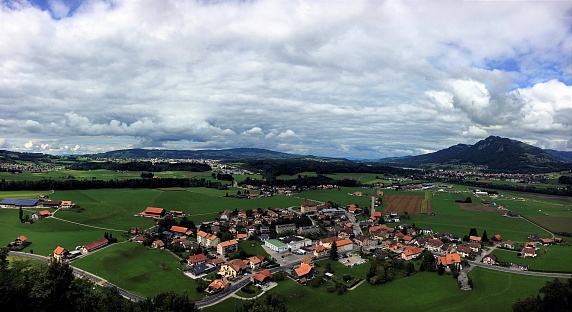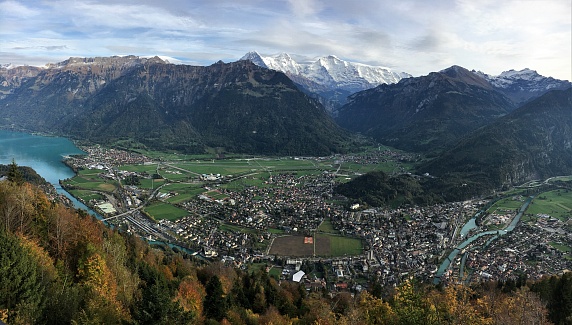 Швейцарская Конфедерация
Швейцарская Конфедерация
STATEMENT BY H.E. SERGEY LAVROV, PERMANENT REPRESENTATIVE OF THE RUSSIAN FEDERATION TO THE UNITED NATIONS IN THE FIRST COMMITTEE OF THE 58-TH SESSION OF THE UNITED NATIONS GENERAL ASSEMBLY OCTOBER 9,2003
The Russian Federation attaches great importance to enhancing the cohesion of the international community, with the United Nations playing a central role, in addressing current issues of the maintenance of global security and stability. Vladimir V.Putin, President of the Russian Federation, in his statement from the rostrum of the General Assembly of the United Nations on 25 September stressed that over the recent years the international community and the United Nations have had to deal with fundamentally new tasks and to grapple with different than before global challenges different than before, the principal one among them being terrorism. Thus, the President of Russia stated, "…the United Nations is duty-bound to become, and is indeed becoming, a basis for the global anti-terrorist coalition. … Russia is convinced that the United Nations should maintain its central role in world affairs".
The effective meeting of these tasks could be facilitated by implementation of the Russian initiative to work out a global strategy to counter new challenges and threats, in accordance with the General Assembly resolution 57/145. We hope that at the current session a new resolution will be adopted which will specify further steps in this direction.
Rapid changes in the world make it imperative that new approaches be adopted to disarmament agenda. Efforts in this area are being taken now in a political climate completely different than before, as the age of confrontation has become a thing of the past. As a result, broad opportunities are emerging for partnership-based approaches in the area of arms control and disarmament. A striking example to this effect is the Russian-US Strategic Offensive Reductions Treaty, which entered into force on 1 June. Having taken a legal obligation to reduce strategic offensive potentials by two-thirds, the two countries have reaffirmed the continuity of the process of nuclear disarmament and have made a real contribution to the fulfillment of their commitments under Article VI of the Treaty on the Non-Proliferation of Nuclear Weapons.
At the same time, the issue of non-proliferation has acquired a new dangerous dimension because terrorists may get access to weapons and materials of mass destruction. No doubt, most resolute efforts are required, including innovative approaches, in order to cut short the spread of WMD and their delivery means. In so doing, we should, as a matter of principle, rely on time-tested rules of international law and accepted non-proliferation mechanisms and continue our work in order to enhance and improve them, taking into account the interests of the entire international community. Success in that area cannot be achieved unless two principal conditions are met, namely, the cohesion of the international community and the removal of motivation leading to emergence of conflict potential in various regions of the world.
In general, while defining methodology of solving current problems in the field of international security we see no alternative to multilateralism. No doubt, multilateralism must be effective. But this can be done only through cooperative multilateralism, taking into account legitimate interests and the need for undiminished security for all states.
Among specific directions of the work aimed at maintaining international security, we give priority to strengthening the NPT. In this regard we should make the most of the preparatory process for the NPT 2005 Review Conference and seek to make sure that it proceeds in a constructive atmosphere and brings positive results. Another logical step in the area of nuclear non-proliferation and disarmament could be the start at the Conference on Disarmament of negotiations on the banning the production of fissile material for nuclear weapons.
We welcome the accession to the NPT of Afghanistan, Cuba and the Timor-Leste. We call, once again, on those countries, which have not yet done so, to accede to the Treaty as non-nuclear weapon states.
The Treaty has recently met with new severe challenges. We consider as a mistake the statement by the People's Democratic Republic of Korea to withdraw from the NPT. Russia has consistently favoured a nuclear-free status of the Korean Peninsular, taking into due account interests and concerns of all parties. The actual situation should be addressed exclusively through political and diplomatic means. The first step has been taken by the launching of the Beijing process. The most important thing now is to make sure that this process moves in the same format forward with the view to the earliest possible settlement of the problem.
As for strengthening the NPT, it is urgent to improve the effectiveness and credibility of its verification machinery, namely the IAEA safeguards system. We call on all States-which have not yet acceded to the Additional Protocol to the IAEA Safeguards Agreement, and, first of all, those who have major nuclear energy programmes, to do so as soon as possible. We support the efforts by the IAEA to clarify questions concerning Iran's nuclear programme. We hope that reciprocal efforts will make it possible to resolve the existing concerns in the nearest future.
In August we marked the fortieth anniversary of the signature of the Treaty Banning Nuclear Weapon Tests in the Atmosphere, in Outer Space and Under Water, which is also widely-known as the Moscow Treaty. The agreement, whose membership now exceeds 130 States, has become one of the first steps made by the international community to hold back nuclear arms race. It had created conditions conducive to further agreements, which were crowned by the conclusion in 1996 of the Comprehensive Nuclear Test Ban Treaty, which prohibited underground nuclear explosions, as well.
We are still seriously worried about the future of the CTBT. We are convinced that one should not slacken efforts to have it enter into force. Therefore, we welcome the Plan of Action of the international community and the Political Declaration supporting the CTBT, as adopted by the Third Conference to Facilitate the Entry-into-Force of the Treaty. As a matter of principle, it is important to respect moratorium on nuclear weapon tests and any other nuclear explosions before the Treaty enters into force. We express our hope that those 12 States, on which the entry into force of the CTBT now depends, would realize their special responsibility for the future of this Treaty. We note a responsible attitude of Afghanistan, Algeria and Kyrghizstan, which have recently ratified the Treaty.
Russia consistently supports the establishment of nuclear-weapon-free zones. Security assurances by the Russian Federation extend now to more than 100 States which have acceded to the relevant NWFZ agreements. If a compromise is found on the issue of security assurances in connection with the Bangkok Treaty, and if a well-known initiative by the Central Asian States is implemented, the list of countries that are covered by such assurances will become all the more impressive.
We note with satisfaction that the International Project on Innovative Nuclear Reactors and Fuel Cycles (INPRO) has been under way since 2001 under the auspices of the IAEA, in the context of the initiative launched by President V. Putin at the United Nations Millennium Summit on energy provision to support the sustainable development of humanity, finding a far-reaching solution to the issues of non-proliferation of nuclear weapons and improving environmental health of the Earth, which presupposes a technological solution to the nuclear safety and security problems. Fifteen countries and institutions are taking part in the project. Russia will continue to lend its full support to implementation of the INPRO, including provision of necessary scientific and technological expertise.
We remain convinced that there can be no delays in resolving the issue of preventing of placement of weapons in outer space. In his statement at the current UNGA session President of the Russian Federation emphasized that "We favor working out of a comprehensive agreement on this issue and invite countries possessing outer space potential to join our initiative".
Russia and China, together with a group of co-sponsoring states, introduced at the CD a working paper entitled "Possible Elements of a Future International Legal Agreement on the Prevention of the Deployment of Weapons in Outer Space, the Threat or Use of Force against Outer Space Objects", which is gaining increasing attention in the world. A preferred venue for further work on such an agreement would be an appropriate Ad Hoc Committee of the CD. Russia has taken necessary steps in order to begin such work and, in general, to get the Conference out of its current deadlock.
Russia's proposal to establish a moratorium on the deployment in outer space of means of combat, pending relevant agreement, also remains valid. Efforts to ensure predictability of the situation in outer space could be facilitated if the outer space powers provide the international community with information concerning forthcoming launches of outer space objects and their purpose, what Russia has been doing since 2003.
The issue of international information security is also among our priorities at the current UNGA session. Russia will submit an updated draft resolution "Developments in the field of information and telecommunications in the context of international security", that is based on the text from the previous year. We hope that a group of governmental experts, to be established in 2004 according to this resolution in order to prepare a report of the United Nations Secretary-General, will consider, carefully and objectively, existing and potential threats in the sphere of information security and possible cooperative measures to address them.
We consider the Convention on the Prohibition of Chemical Weapons as an effective instrument preventing the proliferation of those deadly weapons and reducing the risk of toxic chemicals being used as a means of terror. The best way to prevent the leakage of chemical weapons is to eliminate them completely. Russia has started elimination of its stocks at the facility in Gorny, which has come into operation this year. Universal adherence to the Convention remains an urgent task. We welcome ratification of the Convention by Afghanistan.
It is our intention to take an active part in the activities of the States-parties to the Convention on the Prohibition of Biological and Toxin Weapons as scheduled for the period of up to 2006. We think that these fora are useful to agree on collective steps aimed at strengthening the Convention. We also continue to hold the view that the development of legally binding measures of its verification remains a long-term task in strengthening this Convention.
We attach great importance to political and diplomatic means of solving the problem of missile non-proliferation. We reconfirm Russia's initiatives concerning a Global Control System for the Non-Proliferation of Missiles and Missile Technologies, which are aimed at creating a global regime of missile non-proliferation. While we have supported the Hague Code of Conduct against Ballistic Missile Proliferation, we consider that it is only the first step towards elaboration of a legally binding multilateral agreement on such a regime.
We give a positive assessment to the work of the group of governmental experts on missiles in the framework of the United Nations. We believe that it is high time that this group should proceed with in?depth consideration of the problems of its agenda.
We appreciate the useful work in Geneva of the group of governmental experts in the framework of the review process of the CCW. Progress is evident in elaboration of a draft of a new instrument designed to reduce humanitarian consequences of explosive remnants of war. Considerations have started concerning establishment of additional restrictions on landmines other than anti-personnel landmines. We will continue to take an active part in this process.
We note a leading role played by the United Nations in implementation of a comprehensive approach towards addressing the issue of small arms and light weapons. We believe that what is required is to make the most of the implementation of the UN Programme of Action on Small Arms and Light Weapons. The major efforts should be focused now on combating the illicit traffic of such weapons. It is high time that the start be given to bringing a new content to the UN Programme of Action to Combat the Illicit Traffic of Small Arms and Light Weapons with a view to its adoption by the 2006 Review Conference.
We have taken note of the considerations expressed by a number of States on improvement of the working methods of the UNGA First Committee. We stand ready to participate, in a creative way, in unofficial discussions of this issue. We believe that it is worthwhile to consider it in the context of the UN reform in general, and, first of all, taking into account the specific nature of the activities of the First Committee.
The Russian delegation is prepared for the most constructive and open co-operation in the fulfillment of the challenging tasks that the First Committee is facing.






